Ditapis dengan
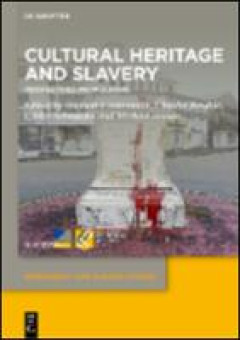
E-book Cultural Heritage and Slavery: Perspectives from Europe
In the recent cultural heritage boom, community-based and national identity projects are intertwined with interest in cultural tourism and sites of the memory of enslavement. Questions of historical guilt and present responsibility have become a source of social conflict, particularly in multicultural societies with an enslaving past. This became apparent in the context of the Black Lives Matte…
- Edisi
- -
- ISBN/ISSN
- 9783111331492
- Deskripsi Fisik
- 352 halaman
- Judul Seri
- -
- No. Panggil
- 930.1 CON c
E-book Mnemonic Solidarity : Global Interventions
This volume introduces a new publication series and a new emphasis in memory studies. The title of the series is Entangled Memories in the Global South. The term “mnemonic solidarity” which gives this book its title signals one response to the observation that historical memories have become entangled. It proposes that that entanglement invites us to rethink memory stu…
- Edisi
- -
- ISBN/ISSN
- 9783030576691
- Deskripsi Fisik
- 144 hlm
- Judul Seri
- -
- No. Panggil
- 902 ERA m
E-book Warlords of Ancient Mexico: How the Mayans and Aztecs Ruled for More T…
Learn the unbelievable true history of the great warrior tribes of Mexico. More than thirteen centuries of incredible spellbinding history are detailed in this intriguing study of the rulers and warriors of Mexico. Dozens of these charismatic leaders of nations and armies are brought to life by the deep research and entertaining storytelling of Peter Tsouras. Tsouras introduces the reader…
- Edisi
- -
- ISBN/ISSN
- 9781629144597
- Deskripsi Fisik
- 405 halaman, ilus.
- Judul Seri
- -
- No. Panggil
- 972 TSO w
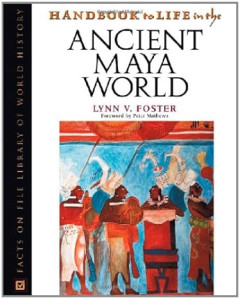
E-book Handbook to Life in the Ancient Maya World
Presents the latest archaeological and historical research on all aspects of Maya society, from its earliest beginnings to the Spanish Conquest in the 16th century.
- Edisi
- -
- ISBN/ISSN
- 9780816041480
- Deskripsi Fisik
- 416 halaman
- Judul Seri
- -
- No. Panggil
- 970.3 FOS h
E-book The Malay Archipelago
A century and a half after it was first published, this book remains one of the great classics of natural history and travel—perhaps the greatest. Alfred Russel Wallace (1823-1913) deserves equal billing with Charles Darwin for his independently drawn but parallel conclusions on the theory of evolution. Darwin himself called Wallace "generous and noble" and referred favorably to his work in l…
- Edisi
- -
- ISBN/ISSN
- 9780794605636
- Deskripsi Fisik
- 600 halaman, ilus.
- Judul Seri
- -
- No. Panggil
- 959 WAL t
E-book The Medieval Economy of Salvation : Charity, Commerce, and the Rise of…
It was a cold winter evening in 2010, and I had just arrived in Paris for a short research trip. The tiny hotel where I would be staying was on the fifth floor of the ophthalmological wing of the hôtel-Dieu (or hospital) just across from the cathedral of Notre Dame. 1 Given the subject of the book I was in France to research, it seemed appropri-ate that I should s…
- Edisi
- -
- ISBN/ISSN
- 9781501742118
- Deskripsi Fisik
- 336 hlm
- Judul Seri
- -
- No. Panggil
- 909.5 DAV t

E-book History of Yugoslavia
Why did Yugoslavia fall apart? Was its violent demise inevitable? Did its population simply fall victim to the lure of nationalism? How did this multinational state survive for so long, and where do we situate the short life of Yugoslavia in the long history of Europe in the twentieth century? The Complete History of Yugoslavia by Marie-Janine Calic provides a concise, accessible, comprehensive…
- Edisi
- -
- ISBN/ISSN
- 9781557538499
- Deskripsi Fisik
- 443 halaman
- Judul Seri
- -
- No. Panggil
- 949.7 CAL h
E-book Borderblur Poetics : Intermedia and Avant-Gardism in Canada, 1963-1988
“This is the death of the poem as I have faithfully reported it, November 29, 1966, as I have faithfully reported it, this is the death of the poem” in-tones Canadian poet bpNichol one day after the Dominion Day celebrations marking Canada’s centennial year. Addressing a national television audi-ence, Nichol reads these lines with poets bill bissett an…
- Edisi
- -
- ISBN/ISSN
- 9781773854588
- Deskripsi Fisik
- 299 hlm
- Judul Seri
- -
- No. Panggil
- 909.82 SCH b
E-book Migrant Ecologies : Environmental Histories of the Pacific World
The creation of—or even the existence of—a “Pacific World” is a question that has preoccupied scholars to a much greater degree than existential doubts have bothered historians of other oceanic basins. Economic historian Eric Jones and colleagues have written that “there can be no meaningful history ofthe whole Rim or Basin [ofthe Pacific] since there…
- Edisi
- -
- ISBN/ISSN
- 9780824892258
- Deskripsi Fisik
- 321 hlm
- Judul Seri
- -
- No. Panggil
- 990 BEA m
E-book Framing the Islands : Power and Diplomatic Agency in Pacific Regionalism
This book tells the story of power and diplomatic agency in Pacific regionalism against the backdrop of a changing global order and a changing political situation within Pacific societies and states. Its purpose is to explore the political significance of this region-building activity for Pacific societies and its political meaning withi…
- Edisi
- -
- ISBN/ISSN
- 9781760463151
- Deskripsi Fisik
- 418 hlm
- Judul Seri
- -
- No. Panggil
- 990 FRY f
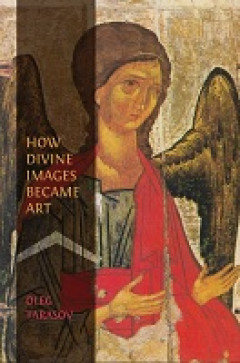
E-book How Divine Images Became Art: Essays on the Rediscovery, Study and Col…
How Divine Images Became Art tells the story of the parallel ‘discovery’ of Russian medieval art and of the Italian ‘primitives’ at the beginning of the twentieth century. While these two developments are well-known, they are usually studied in isolation. Tarasov’s study has the great merit of showing the connection between the art world in Russia and the West, and its impact in the c…
- Edisi
- -
- ISBN/ISSN
- 9781805111580
- Deskripsi Fisik
- 230 halaman
- Judul Seri
- -
- No. Panggil
- 930.1 ROC h
E-book Vietnam Task : The 5th Battalion, The Royal Australian Regiment, 1966�…
Every man sees a war in which he fights from two points of view. The one is his own, his view of his personal life in relation to the harsh environment of battle; the other is the outlook of his unit which makes him share closely the corporate experience of this unit and gives that unit an individual entity and character with its own peculiar difficulties and joys, its…
- Edisi
- -
- ISBN/ISSN
- 9781760465384
- Deskripsi Fisik
- 313 hlm
- Judul Seri
- -
- No. Panggil
- 994 ONE v
E-book The Corporation as a Protagonist in Global History, c. 1550-1750
For almost two decades, historians and academics from a wide- range of sub- disciplinary backgrounds have been situating their research within a global context, crossing boundaries both geographically and methodologically, in such large numbers as to necessitate the emergence of a recognisably new field of enquiry: Global History. From comparative to connective histories, the …
- Edisi
- -
- ISBN/ISSN
- 9789004387850
- Deskripsi Fisik
- 343 hlm
- Judul Seri
- -
- No. Panggil
- 909.5 PET t
E-book Religion and Governance in England’s Emerging Colonial Empire, 1601�…
On 15 September 1622, the poet, onetime MP, lawyer and cleric JohnDonne delivered a sermon in the grounds of the old cathedral at St Paul’sCross, in which he argued the importance of religion to the govern-mental success of the Virginia Company (VC). Donne demonstrated,in his inimitable style, that structured religious governance would leadto the company successfully establishing control over…
- Edisi
- -
- ISBN/ISSN
- 9783030701314
- Deskripsi Fisik
- 297 hlm
- Judul Seri
- -
- No. Panggil
- 940 SMI r
E-boo Like Fire : The Paliau Movement and Millenarianism in Melanesia
In early 2012, when I visited Theodore (Ted) Schwartz at his home in Del Mar, California, he had recently finished digitising audio recordings of interviews he had conducted with Manus people in Papua New Guinea (PNG) from 1953 through 1995; the annotated catalogue went on for many pages.1 Ted gave me an audio tour and we listened to Paliau, his supporters, an…
- Edisi
- -
- ISBN/ISSN
- 9781760464257
- Deskripsi Fisik
- 561 hlm
- Judul Seri
- -
- No. Panggil
- 994 FRE l
E-book Centaurs, Rioting in Thessaly: Memory and the Classical World
Much of the thought and the practice of human life is irredeem-ably related to Ionia, to Achaea, to classical Greek civilisation. Certainly one, if not the only one, of the central imaginings of ourselves and our world is Ionian. Our mapping of ourselves in our world also owes a huge debt to the classical. The emergence, materialisation, and extra-territorialisation of Ionian spaces of philosop…
- Edisi
- -
- ISBN/ISSN
- 9781947447417
- Deskripsi Fisik
- 119 hlm
- Judul Seri
- -
- No. Panggil
- 938 HUD c
E-book The Medical Book: From Witch Doctors to Robot Surgeons, 250 Milestones…
Following his hugely successful The Math Book and The Physics Book, Clifford Pickover now chronicles the advancement of medicine in 250 entertaining, illustrated landmark events. Touching on such diverse subspecialties as genetics, pharmacology, neurology, sexology, and immunology, Pickover intersperses “obvious” historical milestones--the Hippocratic Oath, general anesthesia, the Human Gen…
- Edisi
- -
- ISBN/ISSN
- 9781402792335
- Deskripsi Fisik
- 567 halaman
- Judul Seri
- -
- No. Panggil
- 610.9 PIC t
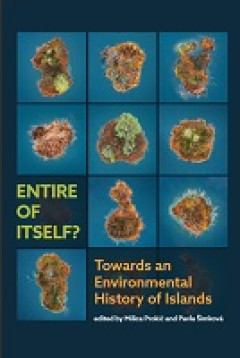
E-book Entire of Itself?: Towards an Environmental History of Islands
The study of islands is booming. Small wonder: islands have played a key role in the history of continents, have been crucial locales of state-making, have served dictatorships as sites of prison systems and have acted as frontiers and stepping stones of empires. However, the role that island environments have played in creating and shaping these histories has so far received little attention. …
- Edisi
- -
- ISBN/ISSN
- 9781912186839
- Deskripsi Fisik
- 370 halaman, ilus.
- Judul Seri
- -
- No. Panggil
- 361.9 PRO e
E-book History from Loss : A Global Introduction to Histories written from de…
Imagine a world in which there is only one history to watch, read, or listen to. If you find this idea difficult, then you have understood something important about history: that there is never just one version of it on offer. Some people might not like this idea, and try to refute it, but no matter how much they argue, or even work to destroy histories, they will be unsuccessful. We live with …
- Edisi
- -
- ISBN/ISSN
- 9781003127499
- Deskripsi Fisik
- 271 hlm
- Judul Seri
- -
- No. Panggil
- 900 ADO h

E-book Bats and Viruses: A New Frontier of Emerging Infectious Diseases
Approximately 75% of emerging infectious diseases are zoonoses, and the rate of emergence of zoonotic diseases is on the rise. Bats are being increasingly recognised as an important reservoir of zoonotic viruses of different families, including SARS coronavirus, Nipah virus, Hendra virus and Ebola virus. Understanding bats’ role in emerging zoonotic diseases is crucial to this rapidly expandi…
- Edisi
- -
- ISBN/ISSN
- 9781118818732
- Deskripsi Fisik
- 405 halaman, ilus.
- Judul Seri
- -
- No. Panggil
- 614.34 WAN b
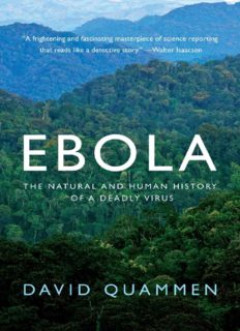
E-book Ebola: The Natural and Human History of a Deadly Virus
In 1976 a deadly virus emerged from the Congo forest. As swiftly as it came, it disappeared, leaving no trace. Over the four decades since, Ebola has emerged sporadically, each time to devastating effect. It can kill up to 90 percent of its victims. In between these outbreaks, it is untraceable, hiding deep in the jungle. The search is on to find Ebola's elusive host animal. And until we find i…
- Edisi
- -
- ISBN/ISSN
- -
- Deskripsi Fisik
- 108 halaman
- Judul Seri
- -
- No. Panggil
- 614.49 QUA e
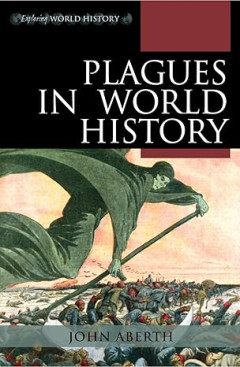
E-book Plagues in World History
Plagues in World History provides a concise, comparative world history of catastrophic infectious diseases, including plague, smallpox, tuberculosis, cholera, influenza, and AIDS. Geographically, these diseases have spread across the entire globe; temporally, they stretch from the sixth century to the present. John Aberth considers not only the varied impact that disease has had upon human hist…
- Edisi
- -
- ISBN/ISSN
- 9780742557055
- Deskripsi Fisik
- 257 halaman
- Judul Seri
- -
- No. Panggil
- 614.49 ABE p
E-book Family and Business during the Industrial Revolution
A visit to a town in the north-west of England 200 years ago would have been anassault on the senses. Though some parts of Liverpool, in particular, experiencedwidespread‘improving’measures from the mid-eighteenth century onwards, in themajority of other places (and indeed throughout significant parts of Liverpool too)it was not until the extensive street-widening schemes of the nineteenth …
- Edisi
- -
- ISBN/ISSN
- 9780198786023
- Deskripsi Fisik
- 279 hlm
- Judul Seri
- -
- No. Panggil
- 909.5 BAR f
E-book At Home in Renaissance Bruges : Connecting Objects, People and Domesti…
Early fifteenth-century travellers such as Spanish writer Pero Tafur praised the city of Bruges because of its liveliness and economic activity: ‘Bruges was a large and wealthy city, and one of the greatest markets of the world [...] anyone who has mon-ey, and wished to spend it, will find in this town alone everything which the world produces’.1 Bruges had played an important…
- Edisi
- -
- ISBN/ISSN
- 9789461664389
- Deskripsi Fisik
- 321 hlm
- Judul Seri
- -
- No. Panggil
- 940 DEG a
E-book Restaging the Past : Historical Pageants, Culture and Society in Moder…
This book examines one of the most significant aspects of popular engagement with the past in twentieth-century Britain. Historical pag-eants began as an Edwardian craze, but persisted as important events in communities and organisations across Britain for much of the next hundred years. Although popular interest in pageantry has undoubtedly declined, re…
- Edisi
- -
- ISBN/ISSN
- 9781787354050
- Deskripsi Fisik
- 346 hlm
- Judul Seri
- -
- No. Panggil
- 940 BAR r
E-book Medicine in Ancient Assur : A Microhistorical Study of the Neo-Assyria…
This monograph approaches ancient medicine through the study of a single individual who practiced magico-medical healing in ancient Mesopotamia. The healer’s name was Ki?ir-Aššur and he was the grandson of B?ba-šuma-ibni, the patronymic ancestor of a family of exorcists. We know nothing about Ki?ir-Aššur’s birth and death, except that he lived arou…
- Edisi
- -
- ISBN/ISSN
- 9789004436084
- Deskripsi Fisik
- 433 hlm
- Judul Seri
- -
- No. Panggil
- 902 ARB m
E-book Congo Style : From Belgian Art Nouveau to African Independence
This is a book about how the Congo was and continues to be imagined in Kinshasa. I outline the way that coproduced visions of nation, modernity, and stereotypes of culture have taken material form in the postcolonial city. My aim is to trace what remains of past presentations of the Congo in the rich textures of key architectural and artistic sites in Kinsh…
- Edisi
- -
- ISBN/ISSN
- 9780472903887
- Deskripsi Fisik
- 249 hlm
- Judul Seri
- -
- No. Panggil
- 960 SAC c
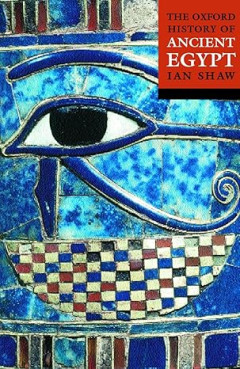
E-book The Oxford History of Ancient Egypt
The Oxford History of Ancient Egypt uniquely covers 700,000 years of ancient Egypt, from c. 700,000 BC to AD 311. Following the story from the Egyptians' prehistoric origins to their conquest by the Persians, Greeks, and Romans, this book resurrects a fascinating society replete with remarkable historical information. It investigates such subjects as the changing nature of life and death in the…
- Edisi
- -
- ISBN/ISSN
- 9780192804587
- Deskripsi Fisik
- 550 halaman, ilus.
- Judul Seri
- -
- No. Panggil
- 932 SHA t
E-book Animals and the Shaping of Modern Medicine : One Health and its Histories
This volume breaks new ground in applying Benson’s second per-spective to medical history: ‘to explore the history of nonhuman ani-mals as subjects in their own right and for their own sakes’.5 Humans remain important, of course, for ultimately we can only know about animals from the records that humans have created, and which reflect …
- Edisi
- -
- ISBN/ISSN
- 9783319643373
- Deskripsi Fisik
- 290 hlm
- Judul Seri
- -
- No. Panggil
- 902 WOO a
E-book Sick Note : A History of the British Welfare State
Darren Anderton played 30 times for the England men’s national football team and made 299 Premier League appearances for Tottenham Hotspur. To fans of a certain age, he is known by another name: ‘Sicknote’. ‘I had a migraine and was throwing up before a Portsmouth game’, recounted Anderton in 2016, some eight years after his final Football League match…
- Edisi
- -
- ISBN/ISSN
- 978019286574
- Deskripsi Fisik
- 245 hlm
- Judul Seri
- -
- No. Panggil
- 940 MIL s
E-book A History of Force Feeding : Hunger Strikes, Prisons and Medical Ethic…
n March 2013, a group of detainees at Guantánamo Bay Detention Camp, Cuba, went on hunger strike. At the height of their protest, 106 individuals were refusing to eat. For detainees incarcerated for over a decade without charge or trial, food refusal offered a potent way to rebel. Having been stripped of their capacity for political communication and placed …
- Edisi
- -
- ISBN/ISSN
- 9783319311135
- Deskripsi Fisik
- 265 hlm
- Judul Seri
- -
- No. Panggil
- 943.9 MIL a
E-book Ginseng and Borderland
In 1745, the Shengjing military governor (jiangjun), Daldangga, wrote to the Qian-long emperor (r. 1736–95) to propose building a guard post at the mouth of the Yalu (K. Amnok) River. The suggested place was Mangniushao, a sandbank located where the confluence of two tributaries of the Yalu River, the Caohe and the Aihe, flowed into the mainstream of the Yalu. These tri…
- Edisi
- -
- ISBN/ISSN
- 9780520295995
- Deskripsi Fisik
- 244 hlm
- Judul Seri
- -
- No. Panggil
- 951.9 KIM g
E-book Policemen of the Tsar : Local Police in an Age of Upheaval
s the minister responsible for the local police, Lanskoi had particular grounds for concern over their poor performance. His, however, was not the only ministry dependent on the police. A contemporary journalist described the local police as, in effect, the eyes, ears, and hands of the state. “Almost everything discussed by ministerial departments,” he noted, “or…
- Edisi
- -
- ISBN/ISSN
- 9789633865767
- Deskripsi Fisik
- 235 hlm
- Judul Seri
- -
- No. Panggil
- 947.1 ABB p
E-book Animal Industries : Nordic Perspectives on the Exploitation of Animals…
In 2019, Juha Marttila, the President of the Central Union of Agricultural Pro-ducers and Forest Owners (MTK) in Finland, expressed his astonishment in apress interview about the increasing public criticism of intensive meat and dairyproduction:“The cow has kept us alive for some ten thousand years, so how comeit has now been made a criminal?”1He was quite right about the long interrela-tio…
- Edisi
- -
- ISBN/ISSN
- 9783110787337
- Deskripsi Fisik
- 281 hlm
- Judul Seri
- -
- No. Panggil
- 940 BJO a
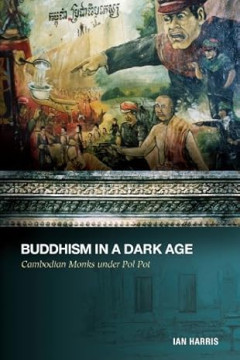
E-book Buddhism in a Dark Age: Cambodian Monks under Pol Pot
This pioneering study of the fate of Buddhism during the communist period in Cambodia puts a human face on a dark period in Cambodia’s history. It is the first sustained analysis of the widely held assumption that the Khmer Rouge under Pol Pot had a centralized plan to liquidate the entire monastic order. Based on a thorough analysis of interview transcripts and a large body of contemporary m…
- Edisi
- -
- ISBN/ISSN
- 9780824835613
- Deskripsi Fisik
- 258 halaman
- Judul Seri
- -
- No. Panggil
- 294.309 HAR b
E-book The Cambridge Illustrated History of the Islamic World
Islamic peoples account for one fifth of the world's population and yet there is widespread misunderstanding in the West of what Islam really is. Francis Robinson and his team set out to address this, revealing the complex and sometimes contrary nature of Muslim culture. As well as taking on the issues uppermost in everyone's minds, such as the role of religious and political fundamentalism, th…
- Edisi
- -
- ISBN/ISSN
- 9780521435102
- Deskripsi Fisik
- 347 halaman, ilus.
- Judul Seri
- -
- No. Panggil
- 297.6 ROB t
E-book The Cambridge Illustrated History of Medicine
- Edisi
- -
- ISBN/ISSN
- 9780521442117
- Deskripsi Fisik
- 400 halaman, ilus.
- Judul Seri
- -
- No. Panggil
- 610 POR t
- Edisi
- -
- ISBN/ISSN
- 9780521442117
- Deskripsi Fisik
- 400 halaman, ilus.
- Judul Seri
- -
- No. Panggil
- 610 POR t
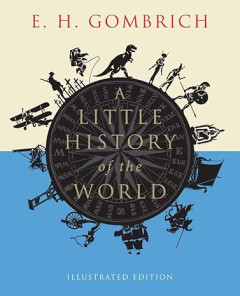
E-book A Little History of the World: Illustrated Edition
E. H. Gombrich’s A Little History of the World, an engaging and lively book written for readers both young and old, vividly brings the full span of human experience on Earth to life, from the stone age to the atomic age. Gombrich’s text paints a colorful picture of wars and conquests; of grand works of art; of the advances and limitations of science; of remarkable people and remarkable even…
- Edisi
- -
- ISBN/ISSN
- 9780300197181
- Deskripsi Fisik
- 455 halaman, ilus.
- Judul Seri
- -
- No. Panggil
- 909 GOM a
E-book The Element Encyclopedia of Secret Societies and Hidden History: The U…
Discover 10,000 years of the shadowy side of our world in this treasure trove of alternative history. The Encyclopedia of Secret Societies features detailed information about.
- Edisi
- -
- ISBN/ISSN
- -
- Deskripsi Fisik
- 550 halaman, ilus.
- Judul Seri
- -
- No. Panggil
- 903 GRE t
E-book Ancient Rome: An Illustrated History
In this colorfully-illustrated reference for young adult readers, the history of ancient Rome is traced from the mythic founding of the city by the twins Romulus and Remus, through its many emperors and wars, to the disintegration of the empire in the third and fourth centuries CE. Boxed information provides further details on aspects of daily life, traditions, and laws; the Roman military; fam…
- Edisi
- -
- ISBN/ISSN
- 9780761499565
- Deskripsi Fisik
- 164 halaman
- Judul Seri
- -
- No. Panggil
- 937 CAV a
E-book An Illustrated History of Britain
This is an illustrated history of Britain from prehistoric times to the present day. The book analyzes the major political and military events in British history, and where appropriate, looks at these within a wider, international context. It also describes everyday life for men and women from different levels of society in different ages: the kind of work they did, family life, etc. Emphasis i…
- Edisi
- -
- ISBN/ISSN
- 9780582749146
- Deskripsi Fisik
- 194 halaman, ilus.
- Judul Seri
- -
- No. Panggil
- 941 MCD a
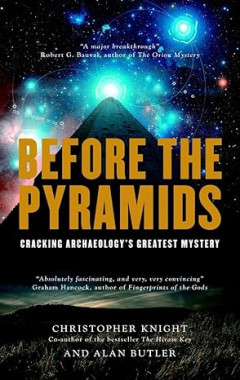
E-book Before the Pyramids: Cracking Archaeology's Greatest Mystery
Were the pyramids of the pharaohs conceived in Britain? The acclaimed coauthors of Civilization One think so, and they take readers on a gripping excursion into ancient religion and astronomy. Knight and Butler not only establish the existence of an advanced civilization with astonishing, almost modern knowledge, but they also explain how the oldest Neolithic monuments--the henges of North York…
- Edisi
- -
- ISBN/ISSN
- 9781907486661
- Deskripsi Fisik
- 252 halaman
- Judul Seri
- -
- No. Panggil
- 932 KNI b
E-book Rethinking the Public Fetus : Historical Perspectives on the Visual Cu…
Today, images of fetuses and pregnant bodies are ubiquitous. We encoun-ter them everywhere—from ultrasound pictures of expected babies in family albums to childbirth scenes in reality television shows or on social media platforms. Images of fetal bodies are also frequently seen in antiabortion campaigns. The capacity of fetal photographs and ultrasound images …
- Edisi
- -
- ISBN/ISSN
- 9781805431404
- Deskripsi Fisik
- 355 hlm
- Judul Seri
- -
- No. Panggil
- 902 BJO r
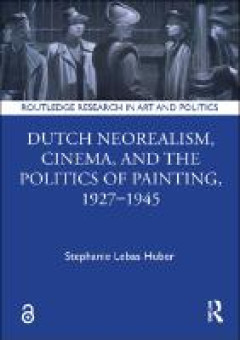
E-book Dutch Neorealism, Cinema, and the Politics of Painting, 1927–1945
This study offers a radically new perspective on Dutch Neorealism, one that emphasizes the role of film as an apparatus, the effects of which, when emulated in painting, can reproduce the affective experience of film-watching. More of a tendency than a tightly defined style or "ism," Neorealism is the Dutch variant of Magic Realism, an uncanny mode of figurative painting identified with Neue Sa…
- Edisi
- -
- ISBN/ISSN
- 9781040135129
- Deskripsi Fisik
- 234 halaman
- Judul Seri
- -
- No. Panggil
- 900.0 HUB d
E-book Invoking Flora Nwapa : Nigerian women writers, femininity and spiritua…
By invoking Flora Nwapa, this monograph draws attention to Nigerian women writers in world literature, with an emphasis on femininity and spirituality. Flora Nwapa’s Efuru was the first internationally published novel in English by a female African writer (Nwapa 1966). With the establishment of Tana Press in 1977, Flora Nwapa also became the first fe…
- Edisi
- -
- ISBN/ISSN
- 9789176351208
- Deskripsi Fisik
- 258 hlm
- Judul Seri
- -
- No. Panggil
- 960 UIM i
E-book All Things Arabia : Arabian Identity and Material Culture
n a suggestive passage, Wilfred Thesiger, or, as his Arab friends affectionately called him, Mubarak bin London, described his encounter with the people of the Empty Quarter in the following terms:“The northern Arabs had no traditions of civiliza-tion behind them. To arrange three stones as a fireplace on which to set a pot was the only archi-tecture that many …
- Edisi
- -
- ISBN/ISSN
- 9789004435926
- Deskripsi Fisik
- 286 hlm
- Judul Seri
- -
- No. Panggil
- 939.4 BAI a
E-book Sharpening the Haze : Visual Essays on Imperial History and Memory
In a blog post on a recent trip to a Peruvia n monastery, Sa ra Salem recounts the moment she recognized Andalusia n tiles da ting from the era of Spa nish coloniza tion. Reflecting on this encounter with the lasting ma terial legacy of imperial expa nsion, she concludes tha t “[w]e could tell a nice story ... a bout how a rt travels a nd spreads a nd crosses bo…
- Edisi
- -
- ISBN/ISSN
- 9781911529651
- Deskripsi Fisik
- -
- Judul Seri
- -
- No. Panggil
- 902 BAR s
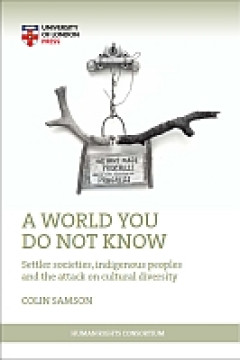
E-book A World You Do Not Know: Settler Societies, Indigenous Peoples and the…
A World You Do Not Know explores the wilful ignorance demonstrated by North America’s settlers in establishing their societies on lands already occupied by indigenous nations. Using the Innu of Labrador-Quebec as one powerful contemporary example, Colin Samson shows how the processes of displacement and assimilation today resemble those of the 19th century as the state and corporations scramb…
- Edisi
- -
- ISBN/ISSN
- 9781912250394
- Deskripsi Fisik
- 278 halaman
- Judul Seri
- -
- No. Panggil
- 325.3 SAM a
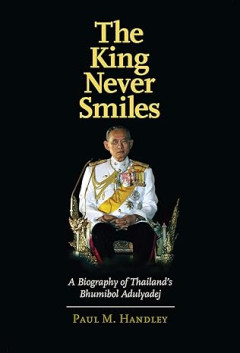
E-book The King Never Smiles: A Biography of Thailand's Bhumibol Adulyadej
Thailand’s Bhumibol Adulyadej, the only king ever born in the United States, came to the throne of his country in 1946 and at the time of his death, in October 2016, was the world’s longest serving monarch. The King Never Smiles, the first independent biography of Thailand's monarch, tells the unexpected story of Bhumibol's life and sixty-year rule—how a Western-raised boy came to be seen…
- Edisi
- -
- ISBN/ISSN
- 9780300106824
- Deskripsi Fisik
- 514 halaman
- Judul Seri
- -
- No. Panggil
- 959.3 HAN t
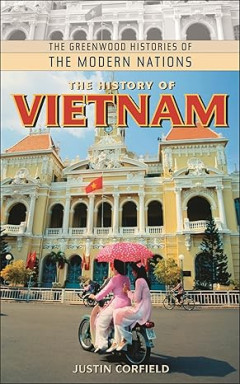
E-book The History of Vietnam (The Greenwood Histories of the Modern Nations)
Everyone knows Vietnam for its turbulent environment during the second half of the 20th century, but few know that archaeologists believe that civilization there existed as far back as the Bronze Age. Vietnam's history runs rampant with clashing dynasties, civil wars and power struggles between the North and South, and conflicts with neighboring and other countries. First ruled under China's cl…
- Edisi
- -
- ISBN/ISSN
- 9780313341939
- Deskripsi Fisik
- 183 halaman
- Judul Seri
- -
- No. Panggil
- 959.7 COR t
 Karya Umum
Karya Umum  Filsafat
Filsafat  Agama
Agama  Ilmu-ilmu Sosial
Ilmu-ilmu Sosial  Bahasa
Bahasa  Ilmu-ilmu Murni
Ilmu-ilmu Murni  Ilmu-ilmu Terapan
Ilmu-ilmu Terapan  Kesenian, Hiburan, dan Olahraga
Kesenian, Hiburan, dan Olahraga  Kesusastraan
Kesusastraan  Geografi dan Sejarah
Geografi dan Sejarah